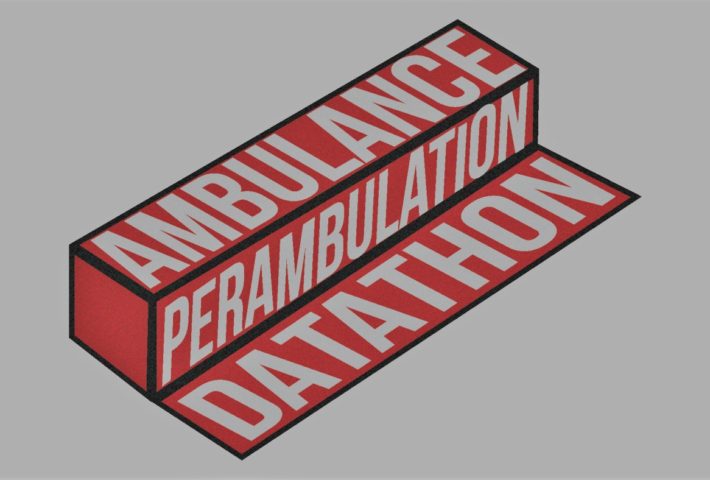
Road traffic collisions are the number one killer of children and young adults aged 5-29, and the 8th leading cause of death worldwide. Post-crash care is one of the five pillars of road safety and a critical component for reducing morbidity and mortality. When it comes to emergency response to road accidents, every second counts. With heavy traffic patterns and the unique layout of the city, finding the best locations to position emergency responders throughout the day as they wait to be called is critical in a city like Nairobi. One of the solutions to this problem is using technology to ensure ambulances are placed efficiently across different locations based on different factors.
On 17-18th October 2020, Uber in collaboration with Flare, WorldBank, Zindi and Ai Kenya organized a 2-day data science hackathon, termed as the Ambulance Perambulation Datathon, an event that brought together data scientists, machine learning engineers, and general data practitioners from Kenya to help reduce the ambulance response time to accidents in Nairobi. Over 60 data enthusiasts and experts gathered for the 2-day event held at iHub Nairobi, with a single mission of solving the perambulation problem. What does perambulation mean, you might ask. Perambulation is a derivative from the word perambulate, which according to the Oxford dictionary means “walk round (a parish, forest, etc.) in order to officially assert and record its boundaries.” The noun, Perambulation, according to Wikipedia is the act of walking around, surveying land, or touring. In English law, its historical meaning is to establish the bounds of a municipality by walking around it. For this datathon, the problem is efficiently placing six ambulances within a specified boundary in Nairobi, such that the response time to an accident crash site is low.
The first day kicked off in the morning by introductions by Alfred Ongere, Ai Kenya Founder team lead, welcoming everyone and sharing the 2 day agenda of the datathon. He was then followed by James Orengo from iHub, who shared more on the innovation hub’s work. He then urged attendees to strictly abide by the Covid-19 guidelines specified by the government due to the current pandemic. All attendees were required to strictly put on their masks and observe social distance as much as possible. Uber, the official hackathon sponsor, was represented by Lorraine Onduru, Head of communications, Uber East Africa, who thanked attendees for attending and participating in Uber’s contribution to open source and innovation through the Uber Movement platform.
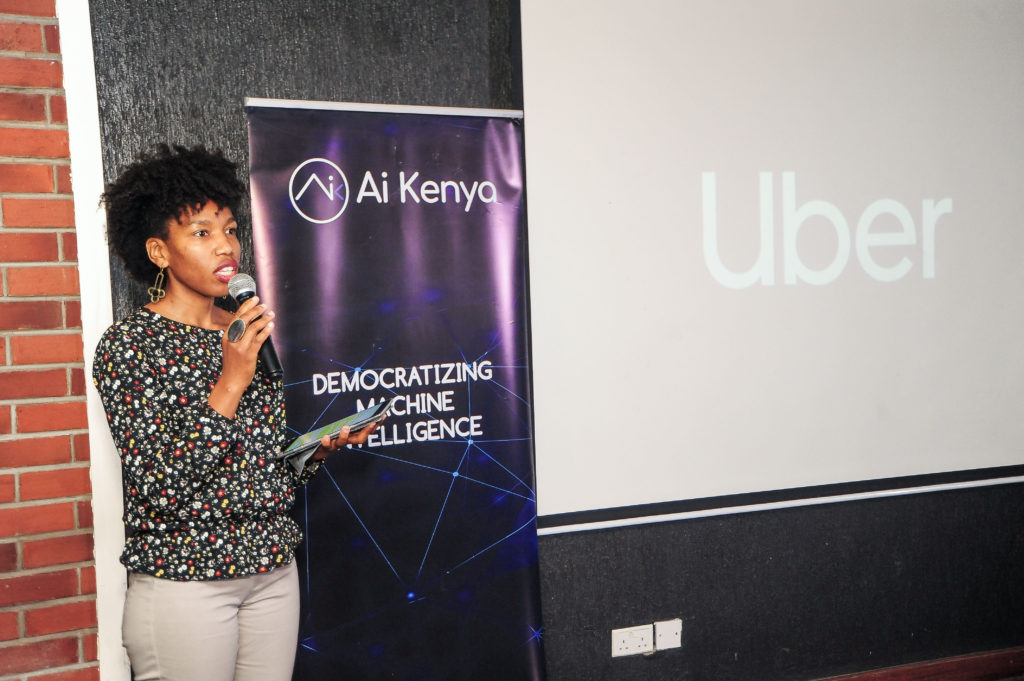
The next session featured Kelvin Gakuo, Data analyst from Flare who walked the participants through the state of emergency response in Kenya and emphasized on the importance of reducing the response time for timely delivery of care. He shared more statistics on the current state of RTAs(Road Traffic Accidents) in Kenya, pointing out that only 1.4% of people involved in road accidents are rescued by ambulances. He also shared some ideas on some of the questions to consider when exploring the data, such as whether road segments with Zebra crossings have more or less RTAs.
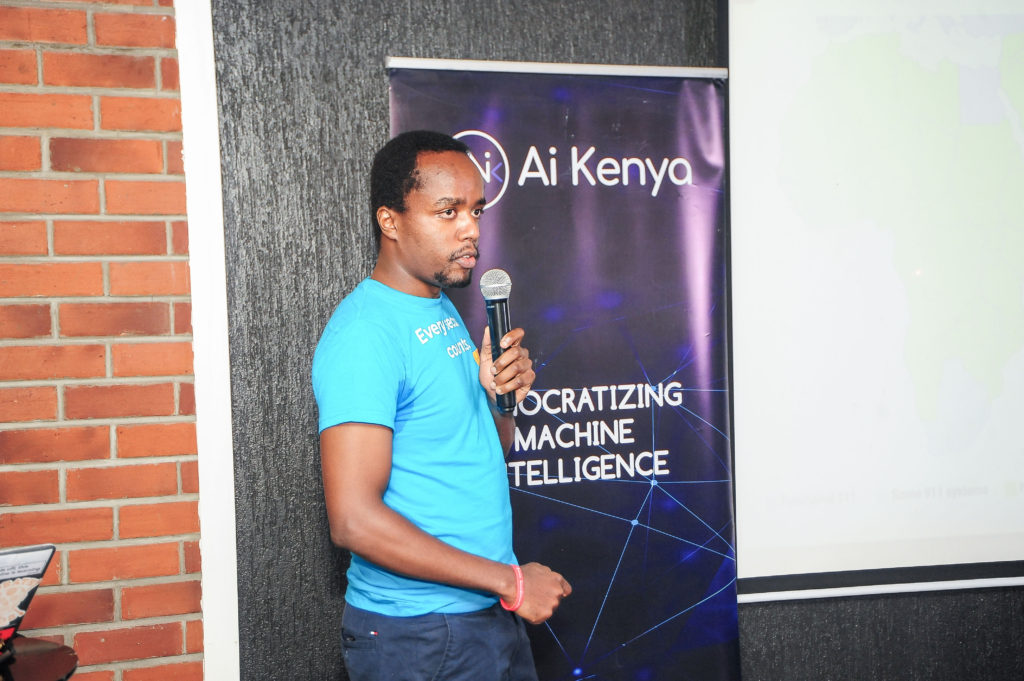
You can watch the session by Kelvin below :
The last presentation of the day was delivered by Chris Orwa, lead data scientist from I&M Bank who guided the participants through the problem and possible approaches to the solution. He kicked off with a brief presentation touching on bayesian reasoning, emphasizing on anchoring the solution on a better understanding of the problem. He followed up with a quick walkthrough on a notebook which highlighted different recommended approaches to the problem.
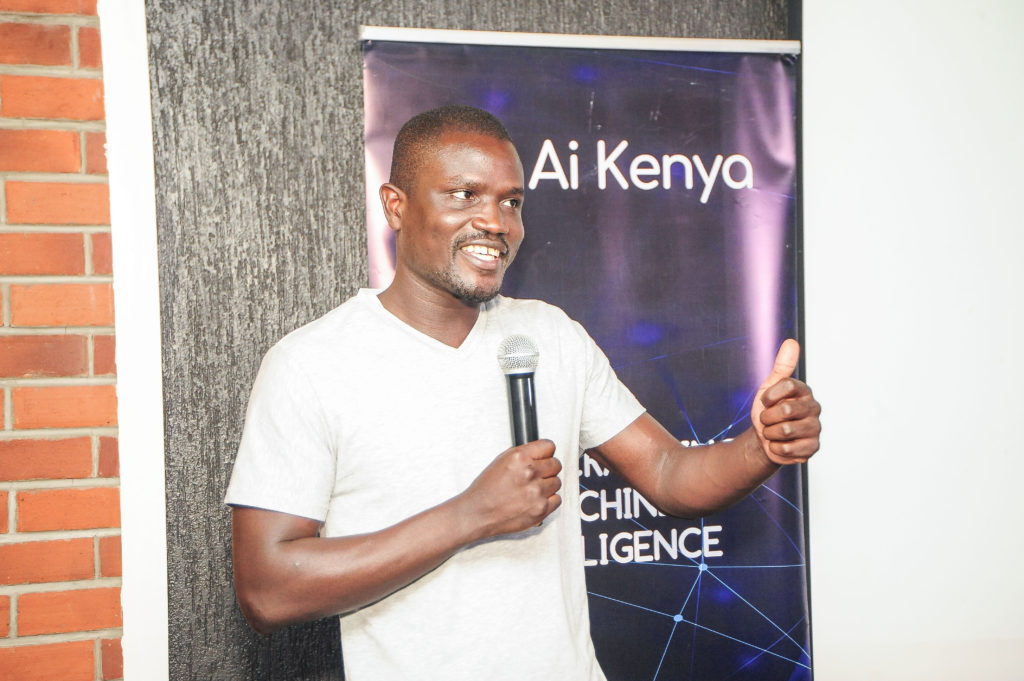
You can watch a recording of the session by Chris below:
Thereafter, the participants embarked on tackling the challenge in groups and individually until evening. The challenge continued on the second day and ended at 3.30 pm on 18th October 2020. This was followed by announcing and awarding of winners based on their ranking on Zindi’s Public leaderboard. The winners were also given chance to present their solutions to the audience by explaining how they approached the challenge.
The winners
In 1st place, the overall winner of the Ambulance Perambulation datathon was Darius Moruri
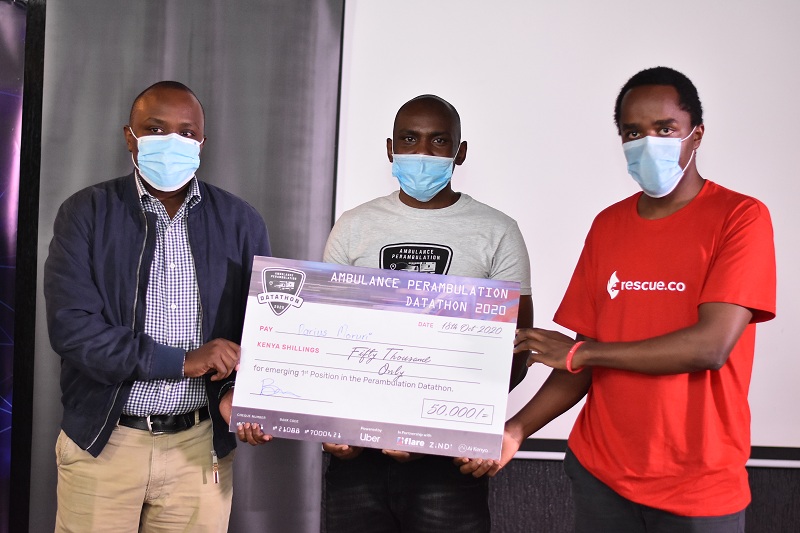
In 2nd position, first runner-up was Agnes Mueni
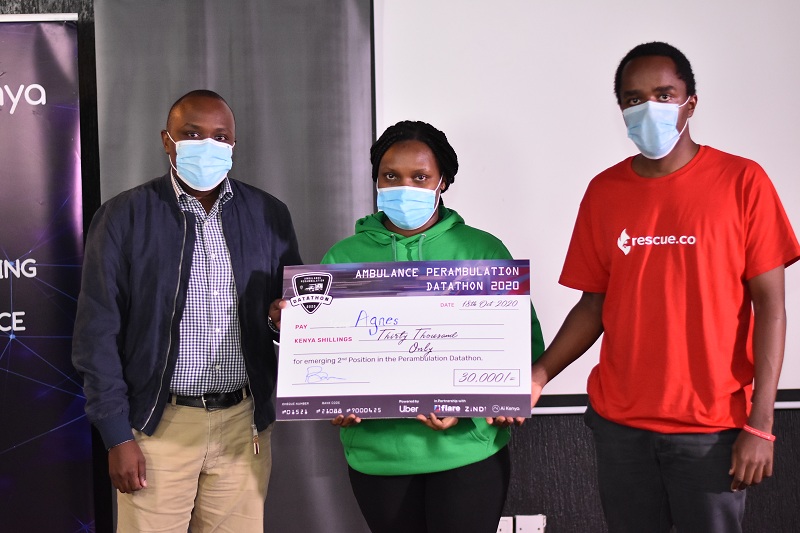
3rd Position went to Team Limuru, consisting of Kate Kuehl, Michael Karanja, Javis Kamau and James Gitau.
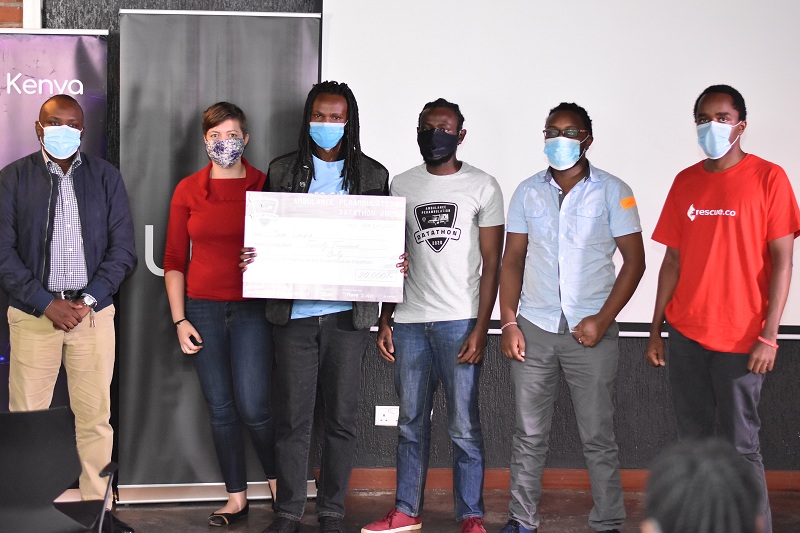
4th position went to John Esther
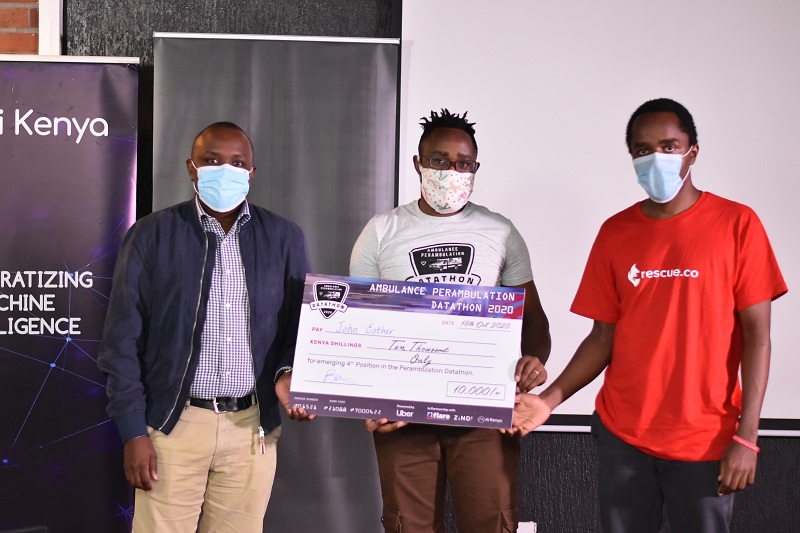
And in 4th position, we had Lawrence Moruye
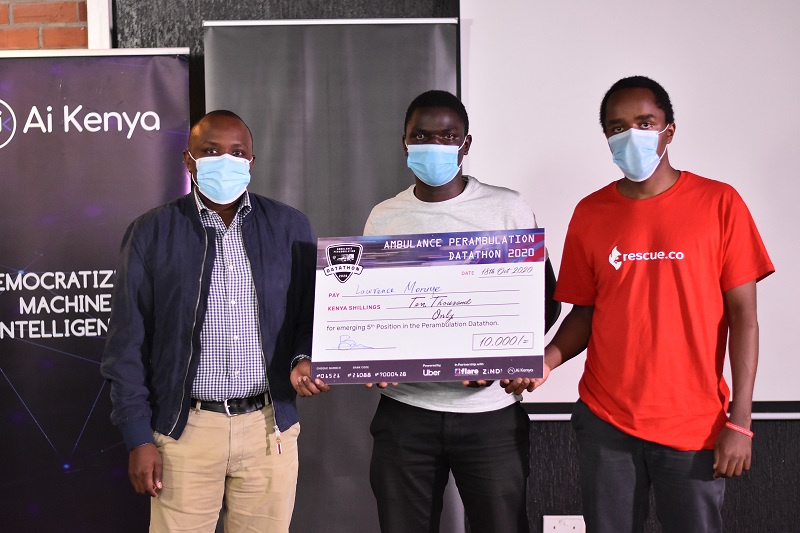
The prizes were awarded as follows:
1st position – KES 50,000
2nd position – KES 30,000
3rd position – KES 20,000
4th position – KES 10,000
5th position – KES 10,000
You can watch a 2-minute highlight recap video of the event below :
The Ambulance Perambulation 2020 Partners
We would like to thank all the event partners that made this event possible:
Uber Movement: a platform that helps urban planners, city officials, riders and the public better understand the transport needs of their cities.
World Bank Development Impact Evaluation Department: Generates high-quality and operationally relevant data and research to transform development policy, help reduce extreme poverty and secure shared property.
Flare: A company that builds 911 systems for places in the world without one. It brings together available ambulances onto a centralized technology platform to help reduce emergency response time.
Zindi Africa: A data science competition platform in Africa.
iHub Nairobi : A co-working space and innovation hub in Nairobi, Kenya.
Whats Good Studios: A creative digital content studio in Nairobi, Kenya.
The Ambulance perambulation challenge is still open and can be accessed on https://zindi.africa/competitions/uber-nairobi-ambulance-perambulation-challenge. The challenge ends on 25th January 2021.
We wish to congratulate the winners of the Ambulance Perambulation Datathon and thank the sponsors, participants, mentors and the Ai Kenya event team for making the datathon a success. We look forward to hosting similar events in the future as part of our mission to grow knowledge and improve skills on data science and machine learning for the Kenyan and wider African ecosystem.
To access all our digital platforms and latest newsletters, please visit https://bit.ly/aik2020

